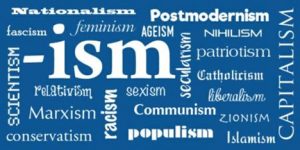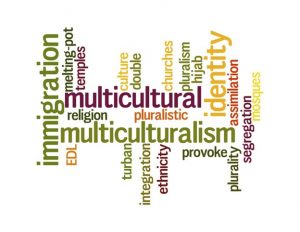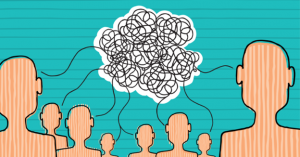“ORIGINAL” MEANINGS, SEMANTIC CHANGE, AND TERMINOLOGICAL ENTROPY

We have observed various instances of the way in which the meaning of words changes over time. Understanding earlier connotations can be useful in shaping the rounded definitions we aspire to use in the creation of a discourse which can serve as a suitable vehicle for the Integration of Knowledge. Ideological influence can be readily observed in semantic change, as for example in the shift in the meaning of the word “craft.” The original meaning was “power, strength,” as in Old English, and in German and Swedish kraft to this day. The sense of “skill, trade, profession” also developed in Old English, and there is an evident semantic relationship between power and skill, since skill enables and empowers. The negative sense of “craft” may have developed because of the influence of the church in teaching that the only “true” power resided in Christian teachings alone, and any power or skill derived from pagan culture was a Satanic and heretical deviation from the truth, hence devious, or “crafty.” In the final section of this essay (the model glossary entry for the keyword Excellence), a similar shift is noted in the radical change in the meaning of “cunning.” Derived from the Indo-European root gno-, the source of “gnostic” and “knowledge,” it originally meant “learned.” The development of its negative sense of “skillfully deceitful” towards the end of the 16th century mirrors the development of the word “crafty.”
In both cases, the original meanings survive to a greater or lesser extent – in the case of “craft” in its positive sense of skillful workmanship, and in the case of “cunning” in its parallel formation “canny,” which still carries the positive sense of shrewd discernment.
However, it is obvious that when the words “crafty” and “cunning” are used today, they invariably mean “devious,” and a more positive spin on them cannot be engineered by artificially resurrecting lost connotations. The case of “freedom” and “liberty” is different in a very important way, because, as we have shown, they can be defined and used to incorporate the best of the historical meanings carried by both.
The same applies to a group of related words which have seminal significance for us in our navigation of key concepts. These are “originality,” “simplicity,” “identity,” “orientation,” “authenticity” and “authority.” The original Greek sense of “originality” was not “inventiveness” but “in accordance with our original nature.” Originality was not seen as a special gift of creative thinkers and artists but as an ordinary, innate capacity common to all human beings, such that, for the ancient Greeks, even a “simple” illiterate person was imprinted with an innate understanding of universal principles. Thus, the essence of, say, geometry (as a symbolic system representing archetypal order, and hence virtue) was embedded in the human soul. Etymologically, the word “simple” itself denotes “same-fold” – that is, not multifarious. It goes back ultimately to a prehistoric Indo-European root which passed into Latin as simplus, “single” and was the source also of English “same, similar, and single.” The “simple” person is a “single,” undivided person, one who is always “the same,” true to himself or herself. Simplicity is like a mirror which reflects the divine unity at the core of every human being.
The concept of singularity is also embedded in the word “identity,” whose essential meaning is best preserved in its derivative “identical” which reflects the meaning of Latin identitas, literally “sameness,” derived from Latin idem, “same.” The sense of “individuality” or “set of definitive characteristics” arose from the notion of something always being the same or always being itself (rather than something else). We speak of varied “identities” and “ways of belonging” and the search for “identity” is a pressing contemporary concern. The origin of the word reminds us that even though we may hold “multiple identities” (“British” and “Muslim,” for example) we can still be faithful to an integrative vision of unity in diversity which perceives the Divine Singularity as the “original” core of our “identity.” Both the English words “origin” and “orientation” come from a common source, Latin oriri, “rise,” and the verb “orient” originally meant “turn the face to the east,” the direction of the rising sun. Whether, as Muslims, we face Mecca or, as Christians, we face the East, or, indeed, wherever we face, we have within us a qiblah and criterion (furqān) or compass that orients us to or origin, a touchstone that shows us the way to be true to be our essential nature, in effect to be an “authentic” human being. The word “authentic” comes from Greek authentikos and its essential meaning is “having the authority of the original creator.” Its original meaning in English was “authoritative.” There is a clear intersection between the underlying Greek senses of “authentic” and “original.” The authentic person is “authoritative” (which is not to say “authoritarian”) only because he or she is stamped with the attributes of the ultimate “authority,” the original Creator. This accords completely with the Islamic concept of the human being as khalīfah, “vicegerent” or “representative” of God.
This article is an excerpt from: Ziauddin Sardar & Jeremy Henzell-Thomas, Rethinking Reform in Higher Education (London/Washington: IIIT, 2017), pp. 197-9.
The views expressed in this article are those of the author and do not necessarily reflect the views of the International Institute of Islamic Thought (IIIT).




